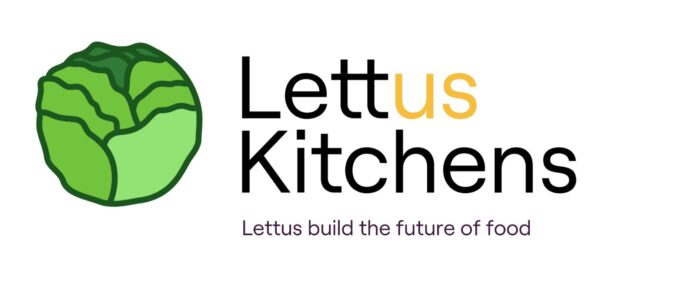KARACHI: Karachi-born American entrepreneur Kash Rehman has invested an undisclosed amount in angel funding to help accelerate growth for Islamabad-based cloud kitchen start-up Lettus Kitchens.
“Lettus Kitchens is building a network of shared cloud kitchens to provide a better variety of online food options through their delivery-only and partner restaurant brands,” said Rehman in a statement to Profit. “Partner restaurants get access to commercially equipped kitchens strategically located within a city. This not only increases their market reach at a faster pace but also helps them to do so with minimal overhead. I truly believe in Bilal’s vision for the company, which dovetails nicely with my investment thesis.”
In 2008, Rehman launched Foodem.com, a wholesale B2B e-commerce marketplace for the $670 billion US food distribution industry. At its peak, Foodem.com had thousands of restaurants transacting with over 500 suppliers carrying millions of products on the platform. He is passionate about solving problems related to the supply chain of the food industry.
In September 2021, Rehman joined early state venture capital firm Sarmayacar Ventures as a limited partner and has also joined the advisory board of Lettus Kitchens. Valued at $3 million according to sources that requested anonymity, the eight-month-old venture was founded by former Careem executive Bilal Sheikh, who soft-launched the first kitchen in Islamabad in June 2021 with four F&B brands.
“After moving back to Pakistan, I spoke to restaurant owners, home chefs, delivery riders, and F&B experts to explore where can we have the most impact,” said Sheikh, the founder & CEO of Lettus Kitchens, in a LinkedIn post. “We aim to solve challenges surrounding food distribution, growing a food business while working with aggregators, and creating a place for culinary professionals to build great careers.”
As reported by Profit, cloud kitchens are delivery-only restaurants that have no physical space for dine-in. The concept relies entirely on online orders placed through online food aggregators or an online ordering-enabled website or mobile app. It is a sister concept to Dark Stores – a micro-fulfillment center without the customers – which was used by Foodpanda to launch Pandamart.
In Q4 2020, the cloud kitchen concept was valued at Rs. 20 billion while research from Euromonitorthe suggests that the global cloud kitchen market is set to grow to $1 trillion by 2030. A business model that promises to optimize delivery services at a minimal cost, cloud kitchens are also known as ghost kitchens, commissary kitchens, and virtual kitchens.
Similar to how the Karachi Eat Festival allows chefs to test their product before fully committing to a food truck or a brick-and-mortar restaurant, cloud kitchens leverage 3rd party apps for marketing, have flexible menus, give chefs room for experimentation, and can optimize processes, ordering, and staff scheduling based on consumer behavior.
The disadvantages of the cloud kitchen model include the operational constraints from being able to deliver within a fixed radius or risk hurting the quality of the food. Sources at Hotpod shared that there are significant challenges in testing out different types of packaging and potentially investing in containers that are more expensive and harder to source.
Given that orders for a cloud kitchen are made using websites, apps, or delivery aggregators, an integrated technology system is required for accepting online orders, processing payments, and ensuring efficient kitchen management. Vendors need both points of sale (POS) systems and an integrated Kitchen Display System (KDS) to optimize order preparation time.
The technology itself, the daily product management, including testing and quality assurance, are essential to ensure that HoReCa’s can streamline kitchen management, maximize efficiency, and identify any lags to further optimize the preparation time.
Lettus Kitchens addresses this challenge with a distributed restaurant platform where the production process is shared with the food entrepreneur and helps them virtually franchise without needing to make a huge capital investment, taking out the operational headaches or worries about talent turnover.
Sheikh aims to empower food entrepreneurs in helping them increase their product’s reach via a network of cloud kitchens.





Jhumka Gira Re Bareli Ke Bazar Mein
A project of great movies and shows